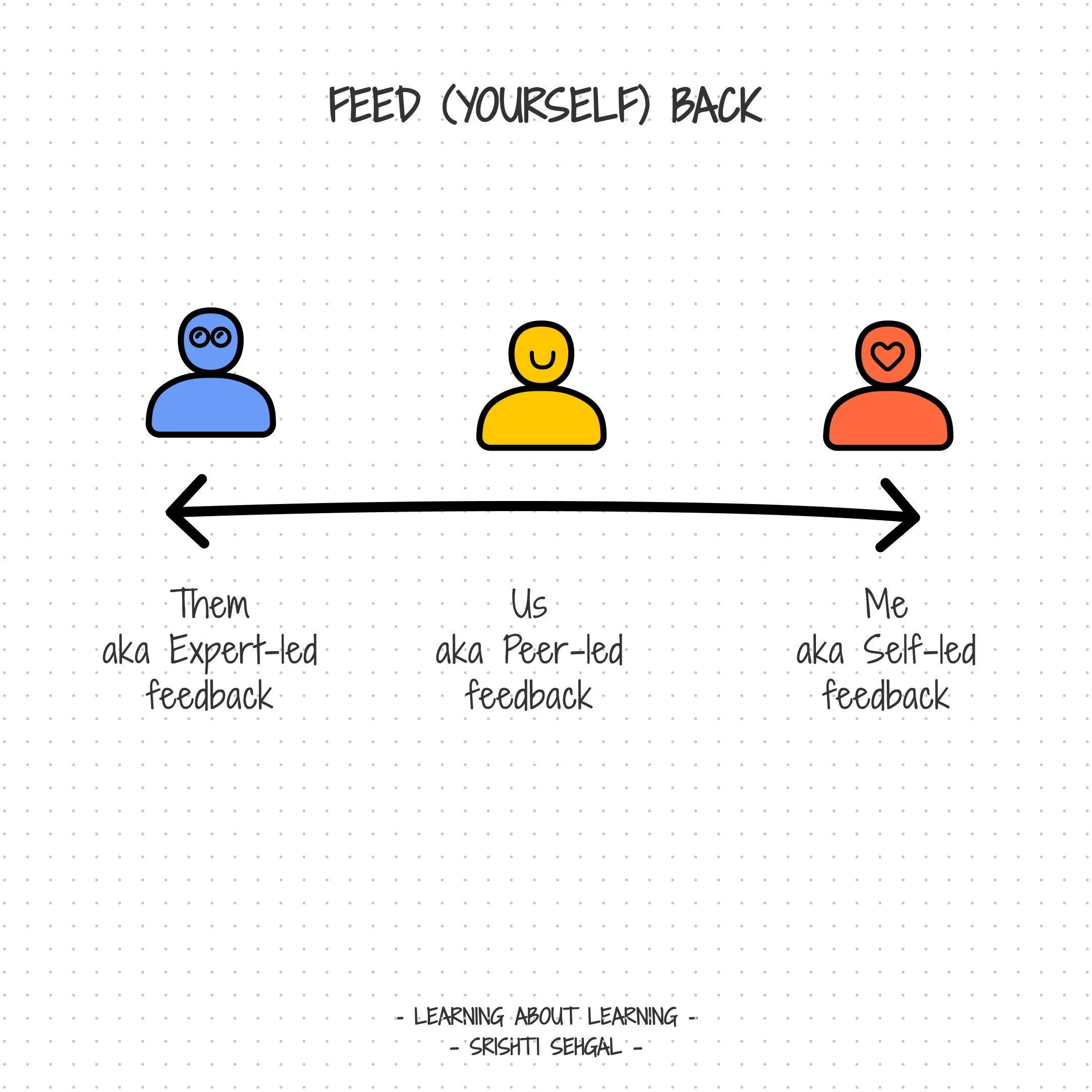Feed (Yourself) Back
Do you know of the three feedback pronouns?
I attended an event by the Transcend Network last week hosted by Harsh Doshi around Feedback Loops in Learning. As part of the same he asked the following questions -
Hitting a tennis ball with the racquet but not knowing where the ball went. How would you improve your shot?
Cooking a dish, but not being able to taste it. Can you ever become a better cook?
Pressing all the buttons on your keyboard, but not being able to see any output on the screen. How long would you really continue typing for?
Learning is incomplete without feedback loops.
If there is one thing that is central to feedback loops, it is people. I’ve been thinking about three pronouns in the context of feedback:
Them aka Expert-led Feedback
Us aka Peer-led Feedback
Me aka Self-led Feedback
Them aka Expert-led Feedback
What this can look like:
Fitness: Your coach telling you how to correct your posture while squatting
Food: A chef tasting your food and telling you how you could have cooked your meat instead
Writing: A blogger telling you how to make your article more engaging
Experts could be mentors, instructors, facilitators or coaches. Experts are great at giving feedback because they:
Are significantly ahead on the same journey that you are on
Understand what is right and wrong
Can explain the process of learning something
Unfortunately, we don’t always have access to experts. While it can be hard to approach and find time with experts, structured programs like workshops, courses and even consulting experts at various points can boost your learning journey.
Us aka Peer-led Feedback
What this can look like:
Fitness: You pacing with a friend while running
Food: Your partner tasting your food and telling you what’s missing in your dressing
Writing: A colleague helping you edit your article better
Depending on the context, Peers could be fellow learners, colleagues or even friends and family. Peers are great at giving feedback because:
They are easy to access & around us always
Are on a similar journey as you are
It helps them get better that things that they know (Teaching to Learn!)
The flip side though - peers might not always have the right answers because they are still learning themselves. By giving the right structure though, peers feedback can be really powerful.
Me aka Self-led Feedback
What this can look like:
Fitness: Recording a video of you squatting and self-evaluating it
Food: Trying out different cooking methods for the same marinade to understand which one works best
Writing: Comparing an article you wrote to a similar article you liked by someone else
You can give feedback to yourself because you:
Know your journey the best
Are the most motivated to get better
Similar to peers, you might not always have the right answers. One powerful tools in this case is comparison. By comparing what you’re doing to something an expert has done or by something you have done in the past can help you learn better.
The best feedback pronoun?
There is none.
There is no one best pronoun. For different learning experiences, different types of pronouns work better. Different pronouns can also come in at various points of the learning journey.
The next time you're learning or designing learning experiences, remember the 3 feedback pronouns!
Over the past few weeks at NextLeap, we have been talking a lot about feedback loops. As we try to discover what feedback loops mean for us, here is a peep into our conversation. If you have something to share, I’d love to hear from you!
